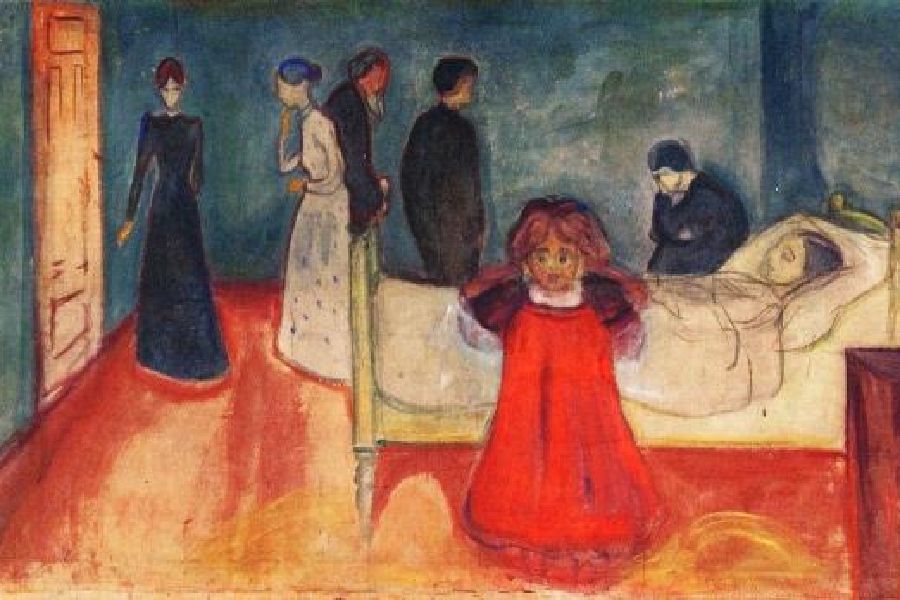Book: Western Lane
Author: Chetna Maroo
Published by: Picador
Price: Rs 599
Writing after the death of his wife, C.S. Lewis had been struck by how grief can often feel like fear — “I am not afraid, but the sensation is like being afraid. The same fluttering in the stomach, the same restlessness, the yawning. I keep on swallowing.” It is such an atmosphere of fearful uncertainty that readers are plunged into in Western Lane, Chetna Maroo’s Booker short-listed novella, when the 11-year-old Gopi starts narrating the story of her family comprising her sisters, Mona and Khush, and her father, Pa, a few weeks after the death of her mother. Pa is afraid that he is not equipped to keep the family together and that his daughters might not need him; Gopi is afraid of being taken away by her oversolicitous aunt and uncle who think that three daughters are too much for Pa to bring up; Mona is afraid of taking on the role of the matriarch and failing in it.
What complicates matters for this Gujarati-Jain family of four living in late 1980s’ England is that none of the members has the language to communicate — or even comprehend — what they are feeling. It does not help that their culture does not encourage conversations about death and grief. While the family members yearn to be heard, they also try to put a brave face on for one another, thus — ironically — perpetuating the cycle of silence. This hush is broken in various, at times clandestine, ways: Pa finds friendship in a white lady, Gopi finds solace in the loud, reverberating thwacks on the squash court and Khush begins speaking to her dead mother. Still, most of the action of the novel unfolds in the silence between the dialogues — each pause is loaded with meaning and every small gesture of the characters speaks louder than words.
This prolonged quietude is both Maroo’s strength and one of the novel’s weaknesses. While the silence does add undercurrents of unease that propel the novel forward, some of the characters’ subtle gestures do not have the same impact when read in text as they perhaps would have done in a visual medium. As a result, some lines need revisiting to fill the gaps in perception.
Pa tries to fill the chasm that opens up in the family with squash — a game the family had played recreationally thus far. He tries to formally train all three girls in squash but only Gopi excels in it. From then on, the squash court becomes the place where most of the action takes place. The court becomes Gopi’s whole life — it is the only place she feels liberated from the stifling silence at home, worries about her sisters, and the burden of her father’s attention. It also gives Pa distraction from his grief and allows him to focus his energies elsewhere — if Pa is not training Gopi at Western Lane, the fancy squash court, he is talking about Jahangir Khan, the celebrated squash player from Pakistan, or he is rewatching old tapes of Khan’s matches. ( Khan’s stories — he became a squash player as a tribute to his brother who also played the game and passed away at a young age — and quotes pepper the book.) Needless to say, Mona and Khush are faced with an additional absence, that of their father for whom Khan’s life becomes a map that can be used to navigate grief, channel it even, to fill a gaping hole. The triumph of Khan over rivals like Geoff Hunt also carries racial undertones.
But neither Khan nor squash manages to overshadow the looming presence of the dead mother. Each sister is intensely aware of her absence: she was more fluent in Gujarati than English, forcing her to rely on the tactile — a hug, a loving touch — as a means of communication. This is in sharp contrast to Pa’s taciturn demeanour. In her death, she also becomes a stick with which to beat the children — “whenever we did something we weren’t supposed to, our relatives would bring Ma’s feelings into it.” Pa, in the meantime, regresses into a world of his own in spite of Gopi’s attempts to keep him occupied with squash. “We began to recognise Ma’s presence in our house, not through any experience of her — there was no sound, or touch of change in the air — but through the quality of Pa’s attention. His eyes were bright. He would look at things and we would know his attention was on her, that he was listening to her.”
All of this happens in a mere 160 pages or so. Like a meticulous editor, Maroo trims the prose of every inch of flab — a tough ask for a debutant novelist. The novel begins in medias res when the family is already immersed in grief and ends abruptly with unresolved grief hanging thick in the air and the characters as lost as they were at the beginning of the novel. Nothing that takes place in between amounts to anything much. The focus is on those whose loss is most acute; the other characters remain underdeveloped — intentionally so — on the hazy margins. “Grief,” they find just as C.S. Lewis had, “is like a long valley, a winding valley where any bend may reveal a totally new landscape.” But it is a valley from which there is no escape.










